Article begins
Last year Anthropology News invited sections to help us highlight some of the outstanding people in our discipline and the exciting, impactful work that they do, whether in scholarly, mentoring, business, public, teaching, or activist contexts. The features first published in the November/December issue of the magazine. Thank you to section contributing editors Cathy Amanti, Dori Beeler, Steven Black, Joseph Feldman, Susan Kenyon, Sheina Lew-Levy, Walter E. Little, Patricia D. López, Melissa Maceyko, Laura Meek, Chandra L. Middleton, Catherine Rhodes, Mallika Sarma, and Thea R. Strand.
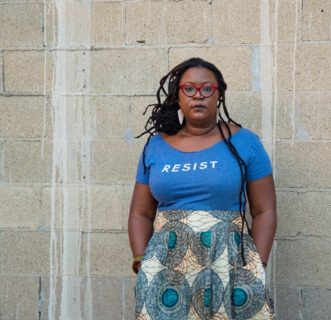
Image description: A Black woman is standing in front of a cement wall outdoors looking into the camera. She is wearing a blue tee-shirt reading “Resist” and an African-print skirt and her hands are in her pocket. She has brown skin, long black dreadlocks, and is wearing red glasses.
Caption: Krystal Smalls
Krystal Smalls
Society for Linguistic Anthropology
The year 2020 has brought Black Lives Matter and racial justice movements to the fore in popular and political discourse. For linguistic anthropologist Krystal Smalls, who has been studying the pervasiveness and global reach of anti-Blackness for more than a decade, the current moment underscores an urgent need to “tease out [anti-Blackness] as something that’s a part of, but distinct from, White supremacy. If we really want to understand what’s happening in [the United States] right now,” Smalls says, “we actually have to get ahold of what anti-Blackness is and how it works alongside fascism and capitalism.”
Smalls, an assistant professor at the University of Illinois, is among those leading this charge through a variety of research projects both on the ground and in digital space. Currently, her primary research involves studying Blackness, anti-Blackness, and anti-anti-Blackness in digital discourse, including the use of Black language and images in tweets, memes, and gifs. While the digital technologies involved may be new, one of Smalls’s aims is to “reformulate this historical moment as one in the lifespan of slavery in order to connect these practices to a legacy of dispossession.”
In 2020, Smalls also sees digital communication as playing a significant role in raising awareness about anti-Blackness, especially regarding police and vigilante violence and the disproportionate impacts of COVID-19 in communities of color. Digital technologies like cell phone cameras and social media, she notes, have made these issues “real and verifiable and meaningful to the world” by “bringing into relief how pervasive anti-Blackness is in Black people’s everyday lives. Some people had to see, again, with their own eyes how nonchalantly our lives are taken.”
Another ongoing project for Smalls is an ethnographic study of transnational Liberian youth, which will be the focus of her first book. Her experiences doing fieldwork among African and African Diaspora youth in Philadelphia and Monrovia (Liberia) connect with her own background in a military family. “Growing up military I got to see a lot of the world and had to figure out my place in it,” Smalls says. “I learned that I could make myself at home anywhere in the world with other Black people, no matter how different we were. And I saw how tied up our futures were with each other”.
Although her family moved frequently, Smalls considers the Gullah/Geechee Lowcountry of South Carolina her “home,” since that’s where all of her family are from and where she has returned throughout her life. A third long-term project is an examination of contemporary Gullah/Geechee survival vis-à-vis hip hop and tourist industries and it considers the community’s negotiations of different Blacknesses amid White supremacy.
Following the thread of Blackness, Smalls’s wide-ranging research is grounded in rigorous interdisciplinary training that spans the fields of anthropology, linguistics, Black studies, and labor relations. A solid grounding in more than one field is something that Smalls endorses and thinks can benefit linguistic anthropology, and particularly research on race and racism, going forward.
(Krystal Smalls, Thea R. Strand, and Steven Black)
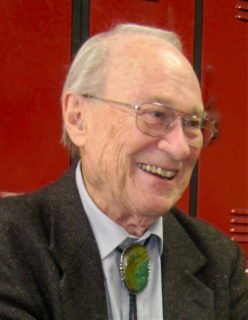
Image description: A man with white hair and glasses smiles broadly in front of a red background.
Caption: Paul L. Doughty
Paul L. Doughty
Association of Senior Anthropologists
Paul L. Doughty, distinguished service professor emeritus at the University of Florida, is a star by any measure. He towers as an anthropologist, teacher, and human being. As colleague seniors, we are proud to recognize his accomplishments. Ralph Bolton, one of his 33 former graduate advisees, outlines our praise well: “Paul is a first-class anthropologist, one of the leading scholars on Andean cultures, a superb advocate for applied anthropology, and a man whose joie de vivre is infectious to everyone around him… . Above all, when I think of Paul, I see a true humanitarian, whose life has been devoted to serving those less fortunate.” Tony Oliver-Smith, a former graduate student and colleague at the University of Florida, adds that Doughty’s “range of work in such international fields as community development, disaster management, race relations, drug use, migration studies, food policy, Indigenous rights, development policy…peace studies, [and] numerous local projects [has been so wide] that it is virtually impossible to [summarize] the breadth, depth and quality of his contributions to our field.”
From the early 1950s, when he was drafted as a conscientious objector to work in Mexico and el Salvador with the American Friends Service Committee, Doughty and his lifetime partner Polly shared a commitment to peaceful social change. His career as an academic leader has been equally distinguished, contributing significantly to the stellar reputation of the Anthropology Department at the University of Florida. In recognition of his many accomplishments, in 2006 Paul was awarded the Society for Applied Anthropology’s Bronislaw Malinowski Award.
Here we recognize Doughty’s contributions to the Association of Senior Anthropologists (ASA). An early ASA member, he joined the Board in 1997 and helped develop the ASA mission, transforming a group of retired anthropologists into the dynamic association of today, one with a distinct identity: that of the living historians of our discipline. He helped propel that identity in 2012 with one of his many publications, Expanding American Anthropology 1945–1980: A Generation Reflects, coedited with Alice B. Kehoe. For almost two decades from 1998 onward, he served as ASA secretary-treasurer and contributing editor. Doughty’s wide-ranging, insightful, erudite, always entertaining columns (most of which he wrote himself), linked anthropology to local and world events in a very accessible style. They, like Paul himself, have set the bar high for future editors and ASA board members!
(Sue Kenyon and Jim Weil)
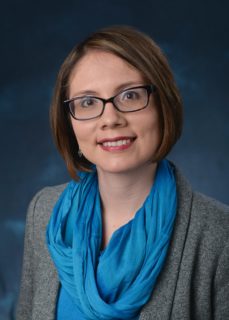
Image description: A woman with short hair and black-rimmed glasses poses in a studio for a portrait.
Caption: Silvia Noguerón-Liu
Silvia Noguerón-Liu
Council on Anthropology and Education
Silvia Noguerón-Liu is representative of the rising generation of scholars in the Council on Anthropology and Education (CAE) who work at the intersection of literacy and language education for emerging bilingual youths, and collaborative and participatory research. Assistant professor of literacy studies at the University of Colorado, Boulder, Noguerón-Liu studies how Latinx youths and families access and use technologies, and how leveraging their digital practices, transnational knowledges, and multilingualism contributes to meaningful learning. In the interview excerpt below, she challenges the conventional digital divide notion, and how the current pandemic affects the educational lives of Latinx immigrant families:
I’ve been trying to understand how families with immigrant backgrounds and transnational networks use technology in very creative ways. I was trying to push back on deficit notions of the digital divide. I was saying, no, people do very creative things, and even if they don’t physically have something, they’re still doing things in creative ways, and they’re communicating, and they’re reaching out, and they are helping, leveraging their networks and relying on extended family or cousins or neighbors. In Georgia, where I used to work…everybody was connected in a way. Most people came from the same rural regions of Mexico.
I think the biggest loss is not so much people not having technologies. Now it’s that people don’t have the networks; they don’t have extended households because we’re not supposed to…Before they may have had the cousin or the neighbor or somebody come and say, “Can you do this for me, next to me.” And now, I don’t know if they’re doing that… It’s very difficult to imagine… how much the children need to do to also collaborate with their parents in helping them [the parents] help them [the children]. I hear teachers say, “Well, they [the parents] don’t know to log in and the children are in first grade so they don’t know how to type.” So how can we help families access a log-in when everything is in English? …It is just a lot of negotiations that require social interaction and reliance on extended households that are now not there.
CAE will continue to learn from Noguerón-Liu and her work with Latinx families, youths and their teachers.
(Silvia Noguerón-Liu and Patricia D. López)
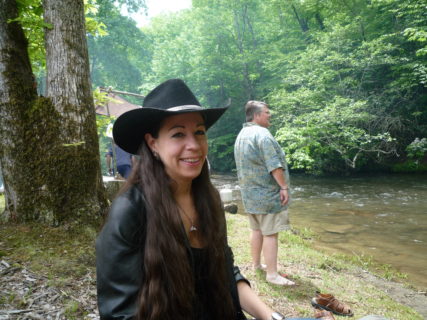
Image description: A Cherokee woman with waist-length wavy brown hair smiles as she sits near a stream; behind her are other people and a vendor booth. It is a bright summer day with thick, green foliage on the far side of the stream. The woman is wearing a black shirt, black coat, and a black cowboy-style hat with a silver hat band, and Quahog earrings, bracelet, and necklace.
Caption: Courtney Lewis
Courtney Lewis
Society for Economic Anthropology
Starting a business is never easy for intrepid entrepreneurs but even more so for American Indian entrepreneurs. Many factors are at play that go beyond basic economic considerations. So, it is even more astonishing that Cherokee entrepreneurs in the Qualla Boundary of the Eastern Band of North Carolina were able to start thriving businesses in the wake of the 2008 global economic collapse. Courtney Lewis, a member of the Department of Anthropology at the University of South Carolina, Columbia, explored these surprising successes stories and the struggles through which people establish flourishing businesses that make them resilient enough to weather the waves of economic recessions and political instabilities that have typified the last 20 years of economies in Native Nations regions and the rural United States.
Lewis’s nuanced ethnographic research gets to the heart of Cherokee cultural practices and community to tell the poignant stories of “Indianpreneurship” that fill the pages of her book, Sovereign Entrepreneurs: Cherokee Small Business Owners and the Making of Economic Sovereignty (2019). Lewis’s passion for the topic comes from long interests in economic development and economic anthropology but is rooted in her own experiences as a small business owner herself and her own Cherokee grandparents’ small business in Oklahoma.
Sovereign Entrepreneurs is not merely the story of American Indian entrepreneurs making good in tough times. It is a deeper exploration of how Native Nations work in relation to wider US cultural, social, and political contexts. Moreover, she gets at just how small business owners and entrepreneurs, in general, figure out how to make their businesses resilient to market ups and downs, shifting consumer tastes that articulate and disarticulate with tourism, and the all too often volatile ethnic and racial politics of the United States.
As a Cherokee Nation citizen and longtime active member of the Society of Economic Anthropology, Lewis began her economic studies at the University of Michigan (BA) and Wayne State University (MA) before earning her PhD in anthropology at the University of North Carolina at Chapel Hill. Prior to taking her position at the University of South Carolina, she was an Andrew W. Mellon Postdoctoral Fellow at the Center for the Americas at Wesleyan University.
(Walter E. Little)
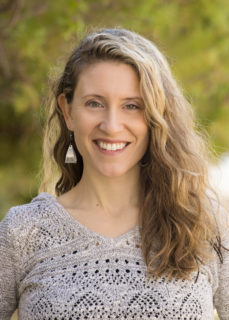
Image description: A white woman is standing outside, smiling for the camera. She has dark blonde wavy hair and is wearing a grey sweater and silver earrings.
Caption: Alyssa Crittenden
Alyssa Crittenden
Evolutionary Anthropology Society
Alyssa Crittenden is associate professor of anthropology and codirector of the Nutrition and Reproduction Laboratory at the University of Nevada, Las Vegas (UNLV). As an anthropologist studying the relationship between human behavior and the ecological, political, and social environment, her work focuses on the links between diet, reproduction, and maternal, infant, and child health and behavior.
Her current research projects span a wide variety of topics and include interdisciplinary collaborations as well as active community and participant engagement. Her projects include the Spatial Cognition and Navigation (SCAN) project, which seeks to understand how navigational demands affect spatial cognition across the lifespan, in collaboration with Elizabeth Cashdan (University of Utah) and Helen Davis (Harvard University). Collaborating with Kristen Herlosky (UNLV) and Daniel Benyshek (UNLV), she is also studying the patterns of maternal and infant health among the Hadza and how changes in sociopolitical ecology and access to health care might be impacting birthing strategies and postpartum behavior. With Stephanie Schnorr (UNLV; Konrad Lorenz Institute), she is exploring the relevance of positive selection on the human salivary amylase gene and how it impacts variation in nutritional acquisition among geographically diverse human populations.
Crittenden’s further large-scale collaborations include work with James McKenna (Santa Clara University), David Samson (University of Toronto, Mississauga), Kayleigh Meighan (UNLV), Missy Cheyney (Oregon State University), Marit Bovbjerg (Oregon State University), and the Midwives Alliance of North America on a cross-cultural examination of patterns of maternal-infant cosleeping around the world. Collaborating with Trevor Pollom (UNLV), Hadza communities, nonprofit partners in the United States and Tanzania, human geographers, environmental engineers, and conservation-based water scientists from various participating universities, she is part of a long-term interdisciplinary project exploring ecological change that focuses on dietary intake, hydration strategies, and food and water insecurity among the Hadza. Finally, working with Hadza community members and Schnorr, Cittenden is part of an important interdisciplinary collaboration to develop a research ethics primer for short-term (often untrained) field researchers collecting biological samples from Indigenous communities.
(Alyssa Crittenden and Mallika Sarma)
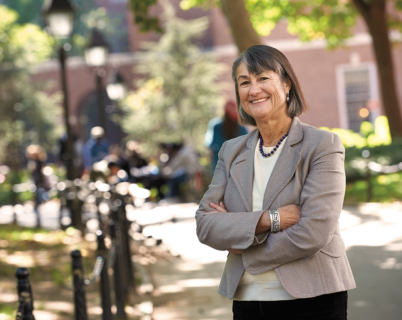
Image description: A woman with dark brown and grey hair wearing light brown blazer and cream colored shirt stands outside during the day and smiles with her arms crossed. In the distance behind her, there are people, trees, and a brick building.
Caption: Sally Engle Merry. ©Thomas: Courtesy of NYU Photo Bureau
Sally Engle Merry
Association for Political and Legal Anthropology (APLA)
On September 8, 2020, APLA and all of anthropology said goodbye to one of its guiding stars, Sally Engle Merry. Merry, who served as one of APLA’s founding members, its president, and editor of PoLAR: Political and Legal Anthropology Review, was always its tireless champion. But she wasn’t just APLA’s star; we shared her with many others. She served as president of the Law & Society Association and as president of the American Ethnological Society. She also provided singular leadership on countless editorial boards, as a mentor to students at Wellesley College and New York University, and as chair of the AAA’s Publishing Futures Committee, which recommends policies for the Association’s current and future publishing program.
Merry was recipient of the AAA’s Franz Boas Award for Exemplary Service to Anthropology in 2019, a tribute for this service but also for her path-defining research. Her early work considered how law and dispute resolution processes in the Northeastern United States and nineteenth century Hawaii shaped the legal consciousness and everyday lives of marginalized communities. Later, she studied international human rights and gender violence, compelling us to think anew about cultural relativism, legal pluralism, and the quantitative analysis of sociocultural phenomena. Across her many publications, Merry’s scholarship showcased her talent for translating empirically grounded, theoretically complex insights into rich ethnography.
Let me end this with a confession. Merry is my wife’s aunt. This has given me a unique vantage—around campfires and conferences—to observe the care she brought to all her engagements. I have heard senior scholars and first year graduate students alike laud Merry’s mentorship. They tell of how she modeled scholarly leadership that meshed intellectual rigor with interpersonal warmth. It reminded me of family and friends who, living in Hawaiʻi, reserve the term “Auntie” for women whose wisdom and warmth hold their deepest respect. In this regard, perhaps I am not the only one who thinks of Merry as their auntie. So many benefitted from her example. From all of us, I say, “Thank you, Aunt Sally.”
(Justin B. Richland)
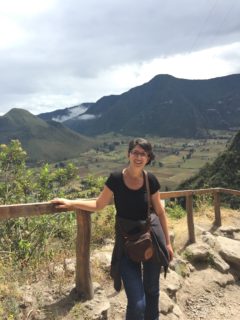
Image description: A woman with short dark hair stands in front of a wooden railing and hiking path down to Pululahua Geobotanical Reserve in the Ecuadorean Andes.
Caption: M. Cristina Alcalde
M. Cristina Alcalde
Society for Latin American and Caribbean Anthropology
A concern with transnationalism, exclusion, and belonging drives M. Cristina Alcalde’s scholarship and professional work as an anthropologist. A Marie Rich Endowed Professor of Gender and Women’s Studies at the University of Kentucky, Alcalde has conducted ethnographic research on a diverse range of topics, including domestic violence in Lima, Peru, the construction of Latino masculinities in Kentucky, and the globalized dimensions of Chinese-Peruvian identities and food (chifa). Her latest book, Peruvian Lives Across Borders: Power, Exclusion, and Home (2018) examines the experiences of middle- and upper-class Peruvians living in Canada, the United States, Germany, and Peru, shedding light on how experiences abroad come to shape immigrants’ conceptions of “home” and the prospect of return. Among the concepts Alcalde develops in this timely and eminently readable ethnography is “exclusionary cosmopolitanism.” This notion captures how migrants’ narratives of having obtained a worldly, tolerant outlook as a result of time spent overseas can reinforce their relative privilege vis-à-vis other Peruvians, thus reproducing hierarchies of race, class, gender, and sexuality that characterize the Andean nation and its diaspora.
Alcalde’s attention to the interplay of mobility, difference, and power informs her advocacy and administrative work as well. She regularly serves as an expert witness for asylum cases involving Peruvian survivors of domestic violence and LGBTQ individuals, a responsibility she views as part of her commitment as a researcher of gender, sexuality, and migration and an important way to effect change. Alcalde also approaches her administrative role as associate dean of inclusion and internationalization at the University of Kentucky with an ethnographic sensibility, and has worked to establish faculty partnerships and exchanges with universities in Colombia, Ecuador, and Peru. These efforts are rooted in a desire to promote collaborations between US and Latin American scholars across a variety of disciplines and to enhance the visibility of knowledge from the so-called Global South (particularly world anthropologies) in US academia.
Thus, through her scholarship, service, and practice, Alcalde represents a stunning example of how anthropologists can theorize and enact more inclusive forms of cosmopolitanism and mobility.
(M. Christina Alcalde and Joseph Feldman)
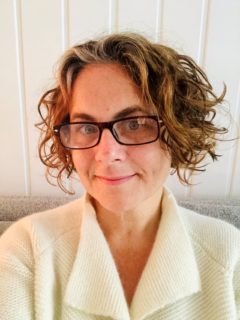
Image description: A middle-aged, white woman with curly hair and glasses takes a selfie on her couch during the COVID-19 pandemic. She is wearing a cream colored wool sweater jacket instead of the sweatshirt she had been wearing for months.
Caption: Elizabeth F. S. Roberts
Elizabeth F. S. Roberts
Society for Medical Anthropology
What if we could truly situate our bodily experiences and biological processes in their historical circumstances—so that biological processes could be understood as dynamic, economic, and political? What if critical medical anthropologists and life scientists made rigorous knowledge about health and inequality together that satisfied all involved parties? Elizabeth F. S. Roberts, at the University of Michigan, is working to situate biologies through Mexican Exposures, the name for her ongoing “bioethnographic” collaboration with environmental health researchers in Mexico City’s working-class neighborhoods. Bioethnography brings together two different methodological bundles—ethnographic observation and biochemical sampling—in a synthetic, symmetrical analysis that asks and answers research questions that could not be posed through ethnographic or life science methods alone.
In 2012, Roberts began collaboration with environmental health researchers from ELEMENT (Early Life Exposure in Mexico to Environmental Toxicants), an ongoing birth cohort study that has examined the developmental effects of chemical exposures for over 25 years. Roberts spent 2014 and 2015 living in working-class neighborhoods with a high density of ELEMENT participant households in order to ask and answer bioethnographic questions with the ELEMENT team.
Currently, Roberts and ELEMENT researchers are conducting fieldwork for several projects within Mexican Exposures (MEXPOS), a project that brings together medical anthropologists and environmental health scientists to create a bioethnographic research platform. In one NESTSMX “Neighborhood Environments as Socio-Techno-Bio Systems: Water Quality, Public Trust, and Health in Mexico City,” the team, which includes environmental engineers, visited 60 ELEMENT families, examining household and neighborhood water worlds. So far they have found that complexities of an intermittent water supply have a large impact on both health and household dynamics. In another project on gendered sleep, the team is examining the relationship of chemical, economic, and household environments to women’s sleep in middle age, with a focus on how sleeping in shared space with several family members might be a different experience than sleeping in middle-class worlds where people tend to sleep alone or with a partner.
Roberts’s collaborative, multidisciplinary activity continues in the qualitative lab where she trains undergraduates in coding and analyzing field materials. The lab is currently focused on the ethnographic materials from the NESTSMX water project and on developing methods for combining them with the environmental engineering data about the impact of intermittent water distribution on everyday life and health. COVID-19 has temporarily halted fieldwork but the team hope to carry out a virtual visit with the project participant families, focused on how the pandemic has impacted their lives, especially in managing water scarcity. Look for a forthcoming article in American Anthropologist, “Making Better Numbers through Bioethnographic Collaboration,” where Roberts lays out the challenges of bringing together ethnography and the life sciences as the MEXPOS team works to better know the complexity of the world.
(Elizabeth F. S. Roberts)
Cite as: Smalls, Krystal, Thea R. Strand, Steven Black, Sue Kenyon, Jim Weil, Silvia Noguerón-Liu, Patricia D. López, Walter E. Little, Alyssa Crittenden, Mallika Sarma, Justin B. Richland, M. Christina Alcalde, Joseph Feldman, and Elizabeth F. S. Roberts. 2021. “Stars from the AAA Sections.” Anthropology News website, January 29, 2021. https://doi.org/10.14506/AN.1579

